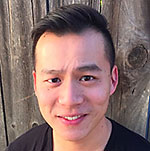
Ahmaud Arbery. Breonna Taylor. Tony McDade. George Floyd.
These sacred people were not the first Black Americans to be victims of police brutality and racial injustice. But in the wake of a global pandemic that elicited the need for “social distancing”, their deaths caused millions all around the world to gather in support of Black lives and to protest white supremacy.
Yet, depending on what station or newspaper you followed for the news, these marches were given a myriad of labels: Protests. Riots. Uprising. Movement. Revolution.
As sociologist Karen Strenheimer noted in her reflection on the 1992 Los Angeles uprising — which was commonly covered by the media as the L.A. Riots — it’s important to distinguish between calling something a riot or rebellion. Both are forms of civil unrest, both products of when a group strives to gain attention for something they feel is unjust. Still, according to Strenheimer, riots are characterized by unruly mobs engaging in violence and mayhem, while rebellions — both violent and non-violent in strategy and action — tend to be more organized and attempt to change the social order in some way.
And then there are those calling for the intentional use of riots as a righteous strategy for change in a system where the law on the books are wielded to further oppress the oppressed.
This discourse is about more than semantics or personal opinion. It involves matters of life and liberation.
Language clarifies and expands. Labels or relationship statuses is one way partners name their relationship not only to the public, but also to differentiate the type of commitment and expectations they have for one another. Identifying pronouns as a regular practice resists the ways in which heteronormativity erases or normalizes gender binaries and stereotypes, and expands the variances of how people present and embody their gender.
Language is also a reflection of how those in power wield words to dominate and erase. From the renaming of lands that indigenous peoples have been caretakers of, to labelling entire people groups as a colonizing tool, western supremacy and colonizing forces have used language to subjugate peoples and lands.
In consideration of these and many other ways in which language is wielded, this issue explores the multi-dimensional meanings of naming and being named. There are limits and imaginations to language. There is subjugation and reclamation, clarity and obfuscation, power and possibility to reimagine. These stories name, rename, and unname such experiences.

Daniel Chou (he) serves as the editor-in-chief of Inheritance and is also one of the magazine’s founders. He holds a Master of Divinity from Fuller Theological Seminary. Outside of Inheritance, he is co-founder of Winnow+Glean and enjoys roasting coffee. He posts sporadically on Instagram @dchou and even more sporadically on Twitter @danielchou.